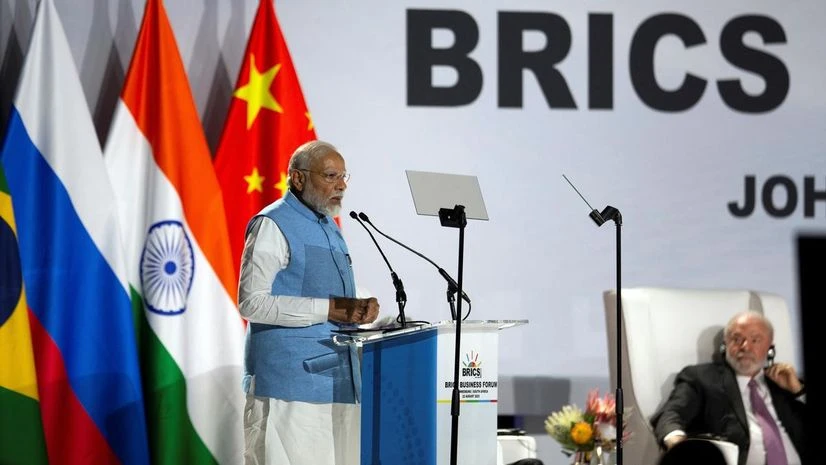The BRICS bloc of top emerging economies, including India, Russia and China, has announced induction of five full members into it as part of an attempt to expand its strategic heft against the backdrop of Western dominance in world affairs.
As Moscow assumed the presidency of BRICS, Russian President Vladimir Putin said on Monday that the grouping has become a 10-nation body now with Egypt, Ethiopia, Iran, Saudi Arabia and the United Arab Emirates joining it as new members.
In August, the top BRICS leaders at the grouping's summit in Johannesburg approved a proposal to admit six countries, including Argentina, into the bloc with effect from January 1.
However, Argentina's new President Javier Milei last week announced withdrawing his country from becoming a member of the BRICS (Brazil-Russia-India-China-South Africa).
"Egypt, Ethiopia, Iran, Saudi Arabia, and the United Arab Emirates joined BRICS as new full members which is a strong indication of the growing authority of the association and its role in international affairs," Putin said in an address.
Also Read
The Russian President said BRICS is attracting an ever increasing number of supporters and like-minded countries that share its underlying principles such as sovereign equality, openness, consensus, aspiration to form a multipolar international order and a fair global financial and trading system.
The grouping took shape in September 2006 and it originally comprised Brazil, Russia, India and China (BRIC). It was renamed as BRICS after South Africa was accepted as a full member in September 2010.
With Brazil, Russia, India, China and South Africa as its members, BRICS represents a quarter of the global economy and it has been a major engine of global economic growth over the years.
In his remarks, Putin said Russian 2024 BRICS chairmanship under the motto 'strengthening multilateralism for equitable global development and security' will focus on positive and constructive cooperation with all concerned countries.
"We will spare no effort to ensure that, while preserving traditions and being guided by the experience gained by the association in years past, we facilitate the harmonious integration of new participants in all formats of its activities," he said, according to the Kremlin.
"Of course, we will consider the degree to which many other countries, about 30 of them, are prepared to join the BRICS multi-dimensional agenda in one form or another," he said. To this end, we will start working on the modalities of a new category of BRICS partner countries, he said.
"In general, Russia will continue to promote all aspects of the BRICS partnership in three key areas: politics and security, economy and finance, and cultural and humanitarian contacts," he said.
"Naturally, we will focus on enhancing foreign policy coordination among the member countries and on jointly seeking effective responses to the challenges and threats to international and regional security and stability," he said.
Putin said the priorities under the Russian presidency of the grouping will include promoting cooperation in science, high technology, healthcare, environmental protection, culture and sports.
"In total, over 200 events of different levels and types will be held in many Russian cities as part of the chairmanship," he said.
"We encourage representatives of all countries interested in cooperating with our organisation to take part in them. The BRICS Summit in Kazan in October will be the culmination of our chairmanship," he added.
(Only the headline and picture of this report may have been reworked by the Business Standard staff; the rest of the content is auto-generated from a syndicated feed.)

)
